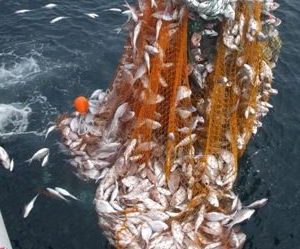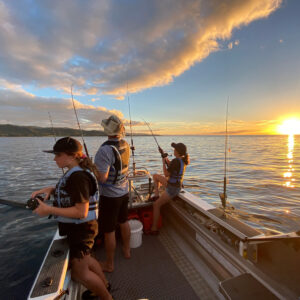As we fish through another summer of mixed success we’ve had lots of time to think about our fisheries and wonder how we’ve got it so wrong. Our fishing is not the same as what our forefathers had and it’s pretty scary to think what we have to pass onto our next generations.
Thankfully the public is starting to wake up to the fallacies around our so-called ‘world leading’ Quota Management System and realising that they have been sold a pup.
In 1986 when the QMS was being implemented people were rightfully wary of giving away perpetual quota in our fisheries. Reassurances were given that all would be well and the country would retain control of its natural assets.
Sustainable quotas would be set and husbandry would abound because it was in commercial fisher’s interests to protect the stocks. Also, a draft National Policy for Marine Recreational Fishing was issued with the stated goal – to maintain or improve marine recreational fisheries.

Unfortunately, the QMS has evolved into an oligarchy, where a few large companies dominate the asset and collect rent from the fishermen at the bottom of the quota food chain. Ongoing revelations of widespread dumping and wastage are symptoms of the disconnection between quota holder and fisher.
Recreational fishers were concerned about giving away perpetual quotas in fisheries that sustained our coastal communities, domestic and international tourists, through the summer months.
These fears were quelled somewhat by the 1986 Policy and the clear statement from the Minister of Fisheries, “MAF will give preference to non-commercial fishing in areas readily accessible to or popular with the public where a species is not sufficiently abundant to support both non-commercial and commercial fishing.”
Wham. What more assurance did we need?
Three years later the then Minister, Colin Moyle, reiterated this commitment when he issued the National Policy for Marine Recreational Fisheries. He made a landmark statement referred to as Moyle’s Promise – “Government’s position is clear, where a species of fish is not sufficiently abundant to support both commercial and non-commercial fishing, preference will be given to non-commercial fishing.”
Cabinet was soon embroiled in the orange roughy depletion crisis and this policy never made it through to legislation. However, the government’s intentions were clear – public fishing would be protected and fish abundance would be improved through restricting total allowable commercial catch levels.
LegaSea believes it is now time for our government to fulfil that early commitment, if not for us, certainly for our future generations.





